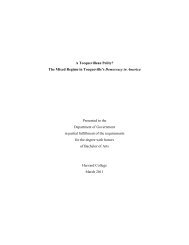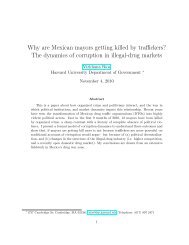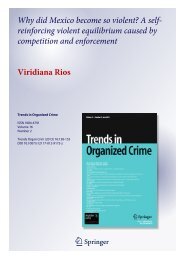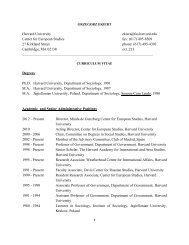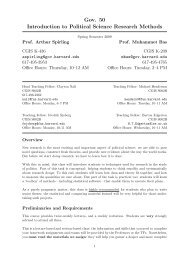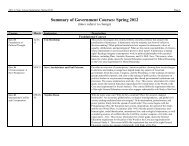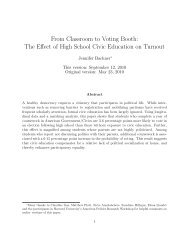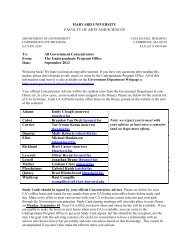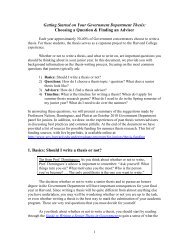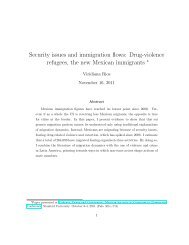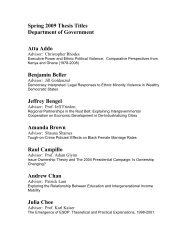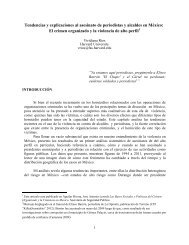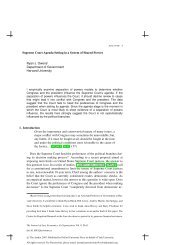1 Harvard University Political Theory Colloquium For 11 March 2010 ...
1 Harvard University Political Theory Colloquium For 11 March 2010 ...
1 Harvard University Political Theory Colloquium For 11 March 2010 ...
You also want an ePaper? Increase the reach of your titles
YUMPU automatically turns print PDFs into web optimized ePapers that Google loves.
21 <br />
but to reject altogether as unbefitting to such men. 21 Socrates, for his part, introduces<br />
sôphrosunê by invoking the need for ‘each individual [to rul[e] himself’, and says that he<br />
means by this ‘just what the many (hoi polloi) mean: being self-controlled (sôphrona)<br />
and master of oneself (enkratê auton heautou), ruling (archonta) the pleasures and<br />
appetites within oneself’ (491de). 22<br />
This is a strikingly strange locution. Why should Socrates go out of the way to<br />
identify his view of sôphrosunê with that of ‘the many’ or hoi polloi? 23 I suggest that this<br />
may well be a reference to the Protagoras, to the many (hoi polloi) there whose view of<br />
what has come to be labeled akrasia can with its help be better understood. Socrates in<br />
the Gorgias and the many of the Protagoras agree that sôphrosunê is the exercise of selfcontrol,<br />
which is understood as controlling and ruling one’s pleasures and appetites. The<br />
many however, if implicitly here, see it as sometimes overcome by pleasures which rebel<br />
against their master, thus as fragile and as unrelated to the knowledge which may or may<br />
not be present. Callicles, for his part, insists that knowledge is entirely unrelated to selfcontrol:<br />
it is unbefitting for the knowing man so to limit himself. But the Socratic view<br />
departs from the view of the many, as from the view of the elite Callicles, in insisting that<br />
the full virtue (as opposed to mere continence) of temperance or self-control arises from<br />
and through the exercise of knowledge. The virtues are a unity, and that unity is<br />
knowledge, but that does not dissolve the virtues into knowledge. Rather it calls for an<br />
account of how knowledge rules in and through the virtues. 24 Indeed, Socrates goes on to<br />
argue in the Gorgias that knowledge is indeed only fully realized in and through the<br />
virtue of self-control, which is the root of all the other virtues. The failure of virtue arises<br />
not from an absence of knowledge conceived merely as ignorance, but from an absence<br />
of knowledge – the absence of its rule – which is tantamount to its impotence.<br />
I conclude this section with a remark on the contrasting strategies of the<br />
Protagoras and the Gorgias. The many in the Protagoras describe the pollous as<br />
knowing the good, but not willing (ouk ethelein) to do what is good, instead doing<br />
something else. The ‘orators and tyrants’ whom Socrates and Polus debate in the<br />
Gorgias are, by contrast, confident in pursuing what seems to them best (doxê beltiston,<br />
466e and passim). They may not enjoy full knowledge, but they are phenomenologically<br />
fully committed to acting on their belief about what it is good to pursue. In refuting the



